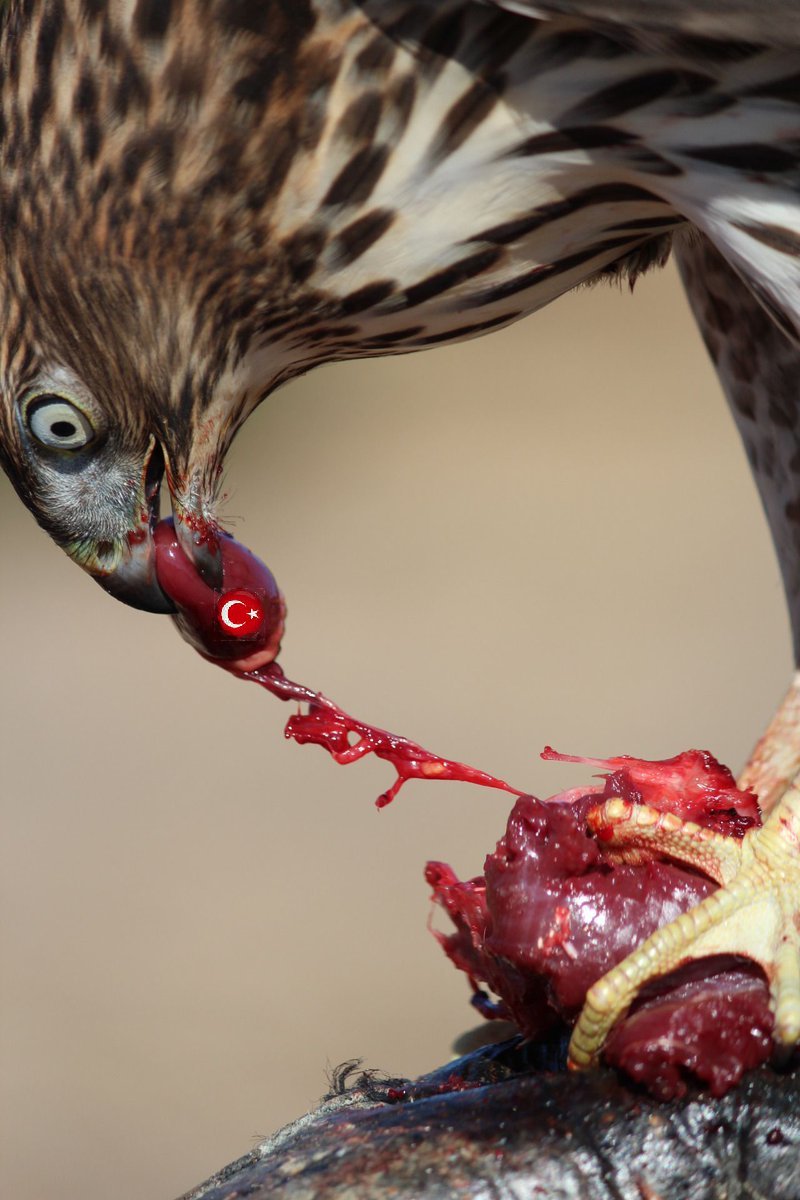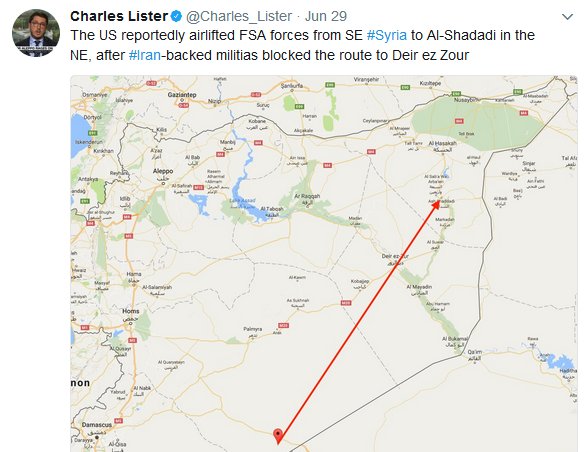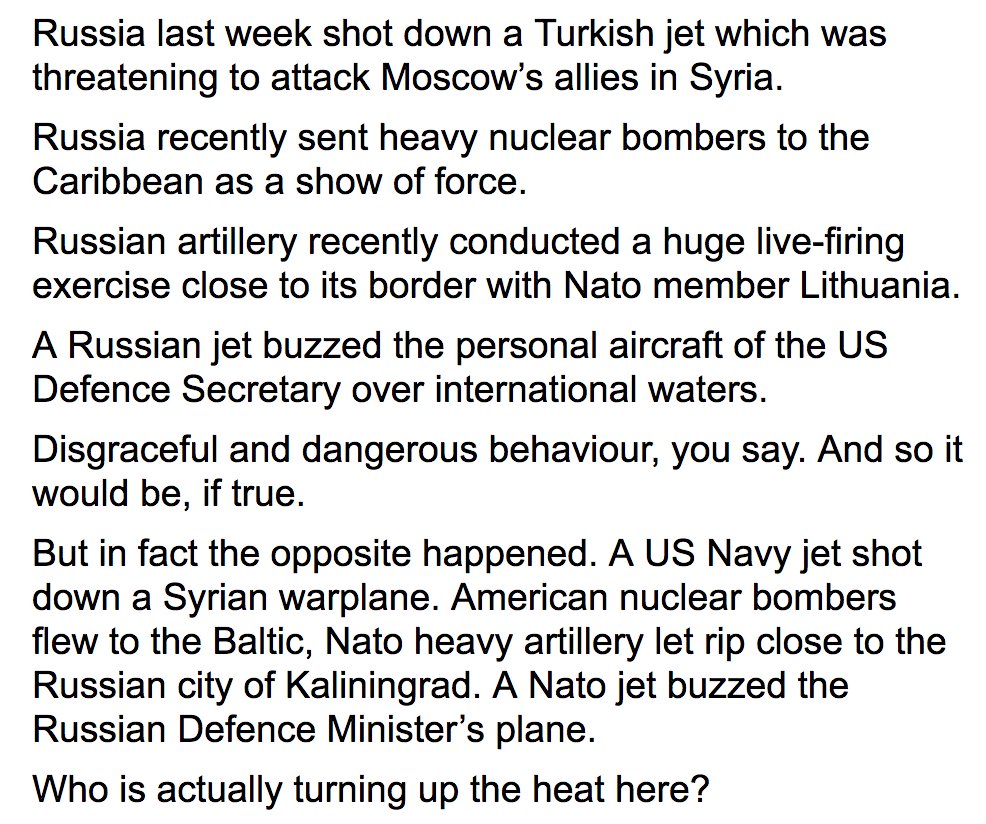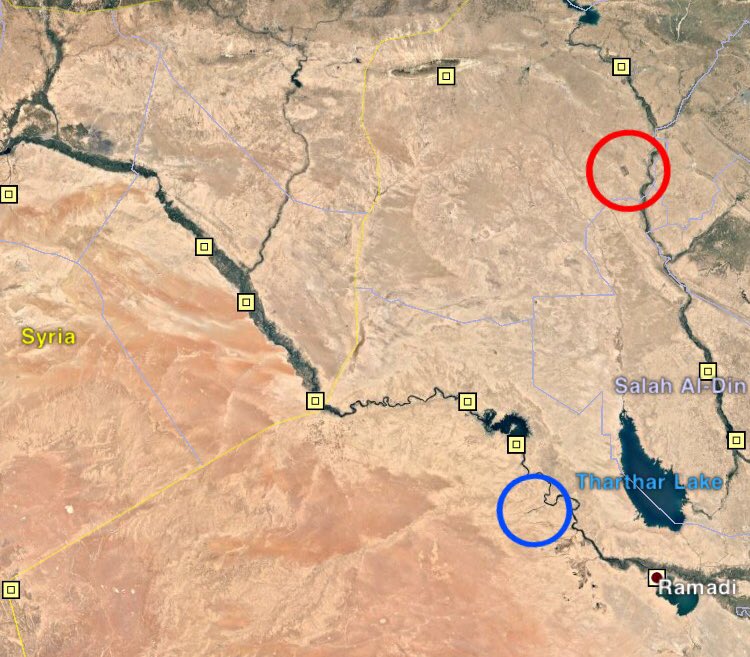
russians have sent 160 more troops and 10 IFVs to their Efrin base





What's to stop the US from simply bombing that small force of Syrians? It wouldn't take much; small selective strikes can keep the SAA & allied militias from securing the key road junctions.Singha wrote:wait for a month . by then someone either SDF from east or SAA+PMU from west-east will get to Al bukamal. whoever holds that crossing will hold the upper hand.
the syrian army engineers have constructed a desert road of sorts to loop around al tanf into iraq. it has been done not to trade right now, but to ease logistics and to prove a point.


https://www.almasdarnews.com/article/vi ... aqqa-isis/Y. Kanan wrote:Ah - clever! So what is the US game plan, then? To cutoff the entire Syria/Iraq border? Like you pointed out, it is just empty desert after all. There's no reason new roads can't be laid down, and relatively fast at that.
So the only way to cutoff Syria from Iran would be to control all of southern Syria. That's worrisome because it means the US is willing to go all the way, and guarantees a big showdown soon. Unless the Russians are willing to accept a strategic loss on that level. Maybe?
Abdel Bari Atwan was born on 17 February 1950 in Deir al-Balah, a Palestinian refugee camp in the Gaza Strip,[1] two years after the creation of Israel. His parents Zilfa and Muhammad Atwan lived in Isdud. He was one of their 11 children. After receiving his primary school education at the camp, his schooling was continued first in Jordan in 1967, and then in Cairo, Egypt.
In 1970, he entered Cairo University where he studied journalism and also received a diploma in English-Arabic translation. After his graduation, he started work as a journalist, first with the Al Balaagh newspaper in Libya, then with Al Madina in Saudi Arabia. In 1978, he moved to London, where he has lived ever since, and assumed a job with Asharq Al Awsat, a major Saudi-owned international daily. In 1980, he set up the London office of Al Madina and in 1984 returned to Asharq Al Awsat.
In 1989, Al Quds Al Arabi was founded by expatriate Palestinians and Abdel Bari Atwan was offered the job as editor-in-chief, which he has held since. The paper has as of 2007 grown into one of the major pan-Arab dailies, and is known for its strident Arab nationalism and defense of the Palestinian cause. It has been banned and censored repeatedly in several Arab countries for vocal criticism of what the paper alleges is their autocratic rule and excessive deference to Israel and the United States. As editor of Al Quds Al Arabi, Abdel Bari Atwan has become a well-known Arab public figure, and is a regular guest on Dateline London on BBC World, Sky News, Al Jazeera English and CNN World, as well as on several Arabic-language networks. He has contributed numerous editorials to a variety of English newspapers including The Guardian, The Mail on Sunday, The Scottish Herald and others; he is a columnist for Gulf News.
He has written four books, with the latest, Islamic State: The Digital Caliphate, published by Saqi Books and the University of California Press in 2015. Atwan has also contributed chapters and essays to several academic and specialist books and journals.
Known for his lively delivery, Atwan regularly gives talks and lectures around the world at a variety of events and venues from the Edinburgh Festival to Harvard University.
n 1996 Abdel Bari Atwan interviewed Osama bin Laden. He had to travel through the mountains, dressed in Afghan clothing. He later called the experience his "most frightening trip". His impression of bin Laden was that he is "a phenomenon, extreme". Atwan stayed in the caves for four days, sleeping in primitive conditions in sub-zero temperatures.
In his book, The Secret History of al-Qa'ida Atwan states, "I do not endorse or in any way support al-Qa'ida's agenda" and "I utterly condemn the attacks on innocent citizens in the West".
Fighting the war in style, driving not walking, and an ice coler in every vehicle with refreshments no doubt. The Saudis tried this style of warfare in Yemen and it didn't work out very well for them.Singha wrote:^^ the desert hawks are not known as foot infantry...some looks like sabiha going by physiques and large bellies.